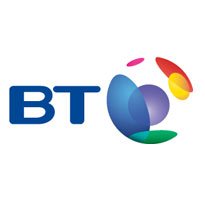BT upbeat on ASCC acute
- 19 April 2011

BT says it is upbeat about the potential of the multiple ASCC procurements in the South of England, this despite unconfirmed reports that it missed out on the initial ASCC community and child health deal.
David Wilson, general manager of BT Health, told eHealth Insider at last month’s Innovation Expo that based on attending first three ASCC plenary sessions, there was reason to be optimistic: “I think there is sufficient flexibility in the ASCC approach for a range of different vendors.”
He added that BT had yet to decide whether it would participate in the procurement framework.
Wilson indicated that BT is likely to bid in all three ASCC acute lots: for systems, hosting and implementation, though no final decision has been taken.
Wilson went on to suggest that if BT did participate and get selected it could wind up offering or implementing solutions from vendors other than Cerner or CSE Health, its main local service provider sub-contractors.
“In the acute and integration areas we would expect to see a slightly wider spectrum of suppliers,” said Wilson.
He said that ASCC acute should offer trusts in the South greater choice, allowing them to select a range of different capabilities to meet their local strategic priorities. “It promises to allow trusts to get the specific systems that meet their business requirements.”
EHI understands that – assuming contracts are awarded – most of the acute trusts that use the framework will pick specific clinical systems such as e-prescribing or departmental systems, with a smaller number opting for patient administration systems.
Wilson said that there are increasing sign of life within the NHS IT market, not only from ASCC but OJEU and Desktop 21 procurements.
He confirmed BT was looking at responding to all of these. “The landscape and procurement activity in increasingly active, but it stands against a complex background.”
Offering a corporate BT view, Wilson said: “BT sees health as a key market with a significant continuing investment in ICT, from networks to EPRs. We also see a large amount of fragmentation in how that investment is distributed.”
Wilson said that BT was "looking at a range of scenarios" beyond the end of its LSP contract for London and parts of the South, and expected “planning in the next 24-months”. He expected priorities for trusts to be around “interoperability and integration”.
“Over the past three to four months we’ve started to see an increased level of engagement with trusts,” said Wilson. He noted that one of the drivers is the requirement for applicant foundation trusts to have an IT strategy approved by Monitor.
Another new area BT is now looking at is Business Intelligence, where Wilson said it was currently evaluating different solutions to assess what would be most appropriate.
He added there was now an opportunity to deliver innovative solutions across the NHS, potentially from innovative SMEs, building on BT’s detailed experience of working with the health service.
At the Innovation Expo, BT was showcasing its range of capabilities on networks, mobility, teleconferencing, and telecare; positioning itself as a provider with a lot more to offer than as an NPfIT prime contractor.




